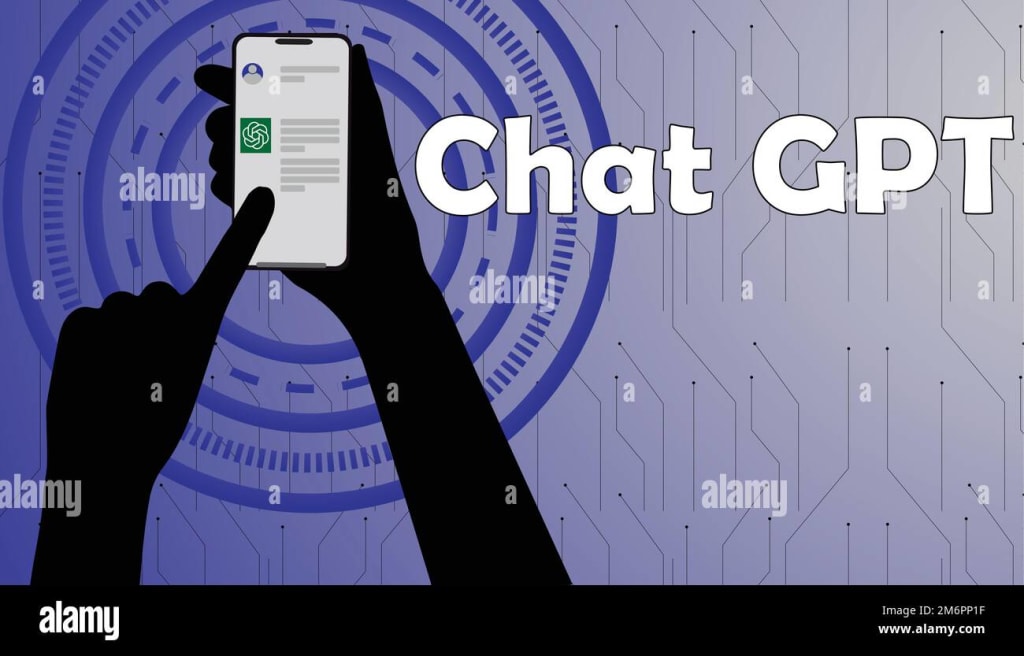
Since OpenAI released its blockbuster bot ChatGPT in November, users have casually experimented with the tool, with even Insider reporters trying to simulate news stories or message potential dates.
To older millennials who grew up with IRC chat rooms — a text instant message system — the personal tone of conversations with the bot can evoke the experience of chatting online. But ChatGPT, the latest in technology known as "large language model tools," doesn't speak with sentience and doesn't "think" the way people do.
That means that even though ChatGPT can explain quantum physics or write a poem on command, a full AI takeover isn't exactly imminent, according to experts.
"There's a saying that an infinite number of monkeys will eventually give you Shakespeare," said Matthew Sag, a law professor at Emory University who studies copyright implications for training and using large language models like ChatGPT.
"There's a large number of monkeys here, giving you things that are impressive — but there is intrinsically a difference between the way that humans produce language, and the way that large language models do it," he said.
Chat bots like GPT are powered by large amounts of data and computing techniques to make predictions to string words together in a meaningful way. They not only tap into a vast amount of vocabulary and information, but also understand words in context. This helps them mimic speech patterns while dispatching an encyclopedic knowledge.
Other tech companies like Google and Meta have developed their own large language model tools, which use programs that take in human prompts and devise sophisticated responses. OpenAI, in a revolutionary move, also created a user interface that is letting the general public experiment with it directly.
Some recent efforts to use chat bots for real-world services have proved troubling — with odd results. The mental health company Koko came under fire this month after its founder wrote about how the company used GPT-3 in an experiment to reply to users.
Koko cofounder Rob Morris hastened to clarify on Twitter that users weren't speaking directly to a chat bot, but that AI was used to "help craft" responses.
The founder of the controversial DoNotPay service, which claims its GPT-3-driven chat bot helps users resolve customer service disputes, also said an AI "lawyer" would advise defendants in actual courtroom traffic cases in real time, though he later walked that back over concerns about its risks.
Other researchers seem to be taking more measured approaches with generative AI tools. Daniel Linna Jr., a professor at Northwestern University who works with the non-profit Lawyers' Committee for Better Housing, researches the effectiveness of technology in the law. He told Insider he's helping to experiment with a chat bot called "Rentervention," which is meant to support tenants.
That bot currently uses technology like Google Dialogueflow, another large language model tool. Linna said he's experimenting with Chat GPT to help "Rentervention" come up with better responses and draft more detailed letters, while gauging its limitations.
"I think there's so much hype around ChatGPT, and tools like this have potential," said Linna. "But it can't do everything — it's not magic."
OpenAI has acknowledged as much, explaining on its own website that "ChatGPT sometimes writes plausible-sounding but incorrect or nonsensical answers."
t has looked, over the past few months, like Big Tech's bull run is coming to end. As interest rates soar, even cash-rich tech companies are pulling back on risky, expensive moonshots or money-losing projects.
But one speculative bet is increasingly looking like excellent value for money.
In 2019, Microsoft invested $1 billion into the buzzy artificial intelligence research outfit OpenAI, cofounded by Y Combinator alum Sam Altman, Elon Musk, and a group of others just over seven years ago. Financial details of the deal weren't disclosed at the time, but MIT Tech Review reported in 2020 that the $1 billion was split between cash and credits for Azure, Microsoft's cloud business. Insider has approached both firms for comment.
In November, OpenAI released a user-friendly bot, ChatGPT, based on its GPT-3.5 language model which was trained on Azure. Engineers, academics, entrepreneurs, non-techies, and investors were near-universal in their hype and praise as ChatGPT proved scarily intelligent (up to a point). Even if flawed, ChatGPT is sufficiently smart that Google sees the chatbot as a "code red" for its search business.
Now OpenAI is reportedly in discussions to raise more capital at a valuation close to $30 billion — up from a current $20 billion valuation — and is in discussions with Peter Thiel-run VC firm Founders Fund, according to reports. The valuation would be cemented through a tender offer involving the sale of existing shares to investors.
However the term globalization may change the lifestyle of people but it has both pros and cons. "WITH LOVE;ENBHA".
About the Creator
Enbha
NATURE LOVE
CRAZE ON BIKES AND CARS
LOVE ON PETS
TRYING TO FIND MEANING IN LIFE
Reader insights
Outstanding
Excellent work. Looking forward to reading more!
Top insight
Expert insights and opinions
Arguments were carefully researched and presented






Comments
There are no comments for this story
Be the first to respond and start the conversation.